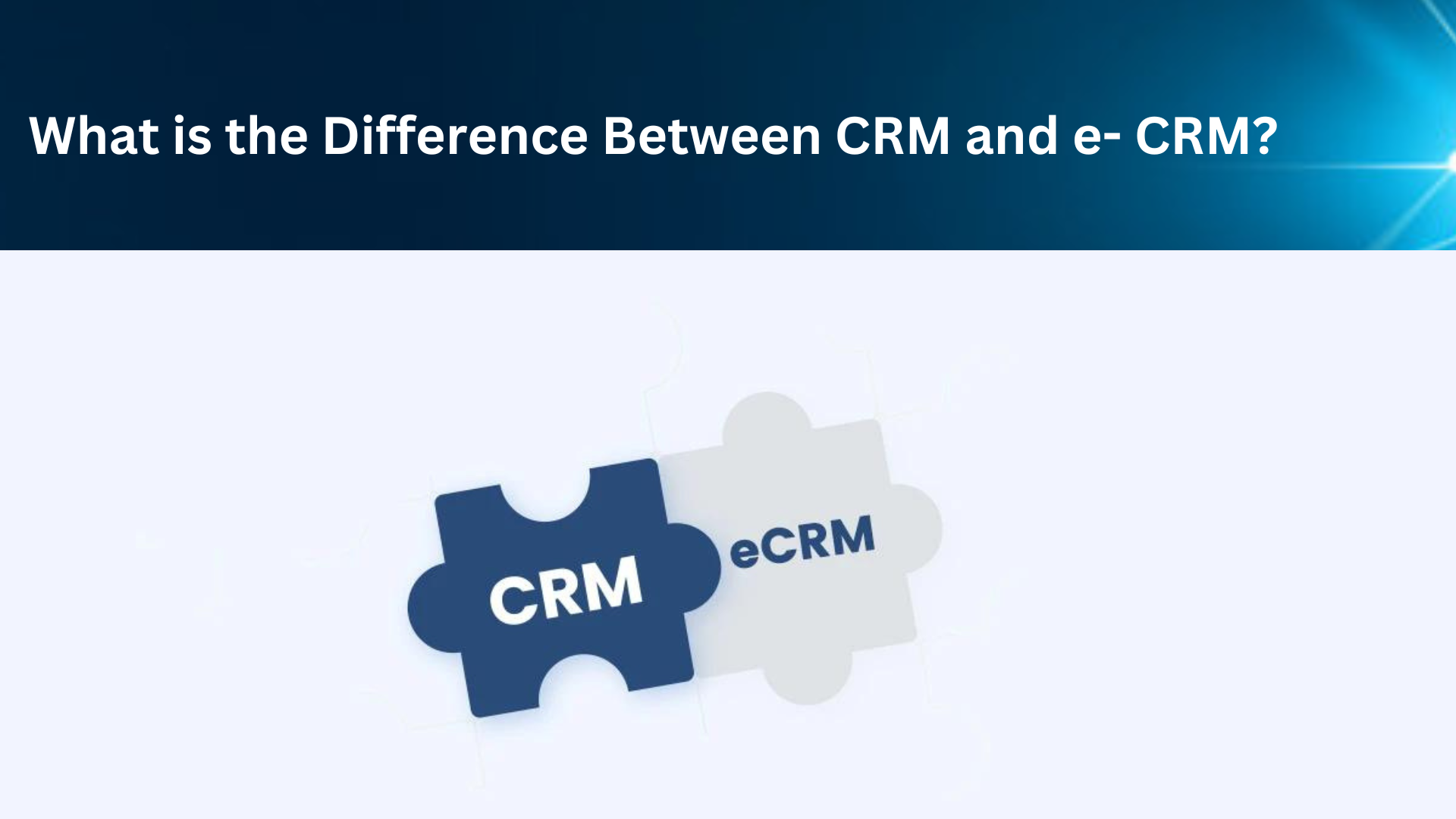
What is the Difference Between CRM and e- CRM?
Difference Between CRM and eCRM – Key Factors
Managing customer interactions requires different approaches, with Customer Relationship Management (CRM) and Electronic Customer Relationship Management (eCRM) being two important tools. It's essential to understand their distinct differences.
About CRM
- It stands for Customer Relation Management.
- Typically, it is utilized as a conventional tool and adheres to established standards to carry out its functions.
- Regarding CRM, customers can initiate contact through a retail store, telephone, or fax.
- In customer relationship management, providing good service is limited by time and space.
About eCRM
- It stands for electronic Customer Relation Management.
- eCRM refers to using electronic and digital tools and standards to conduct operations.
- In E-CRM, customer contact is initiated through various technologies such as telephone, internet, email, wireless, mobile, and PDA.
- Assistance can be offered to customers from anywhere and at any time.
What are the Advantages and Disadvantages of CRM and eCRM?
The advantages and disadvantages of CRM and eCRM are listed below for you.
Advantages of CRM
- Improved customer data management.
- Enhanced sales forecasting and lead tracking.
- Better customer segmentation for targeted marketing.
- Streamlined customer support and issue resolution.
Disadvantages of CRM
- Implementation can be costly and time-consuming.
- Resistance to change from employees.
- Data security and privacy concerns.
Advantages of eCRM
- Real-time customer engagement.
- Cost-effective digital marketing campaigns.
- Enhanced personalization through data analytics.
- Global reach and accessibility.
Disadvantages of eCRM
- Potential for information overload.
- Dependency on technology can lead to technical issues.
- Limited personal touch in digital interactions.
What are the Various Components of CRM?
Key components of CRM include:
- Customer Database: Storing and managing customer information.
- Sales Automation: Automating sales processes and lead tracking.
- Marketing Automation: Managing marketing campaigns and customer communication.
- Customer Support: Handling inquiries, complaints, and support requests.
- Analytics and Reporting: Extracting insights from customer data.
- Integration: Connecting CRM with other business systems.
Conclusion
In conclusion, What is the difference between CRM and ECRM? You’ll learn that CRM and eCRM are essential tools for businesses building and maintaining strong customer relationships. While CRM covers a broader spectrum of customer interactions, eCRM specializes in digital channels. The choice between CRM and eCRM depends on an organization’s specific needs and the nature of its customer interactions.







